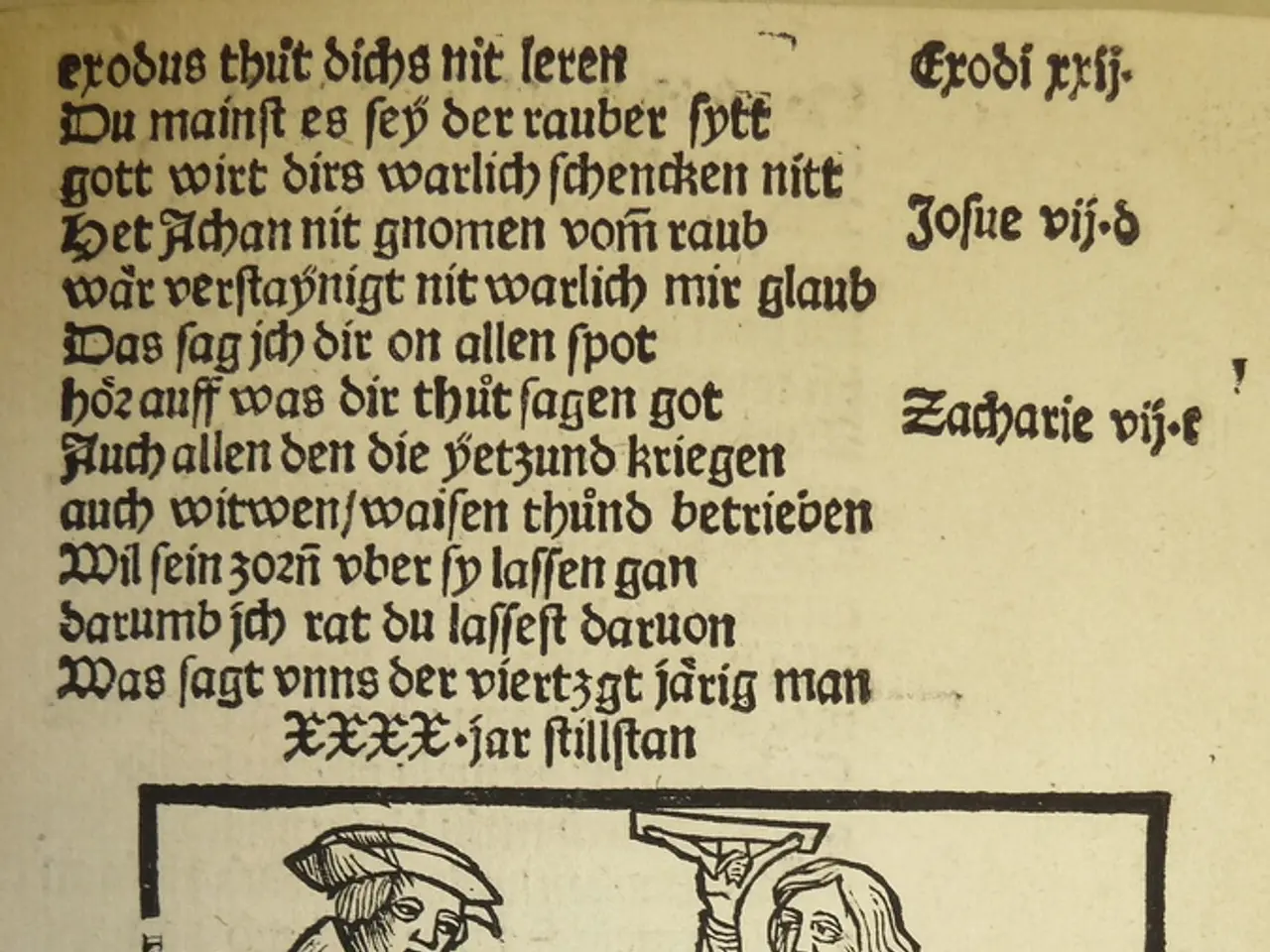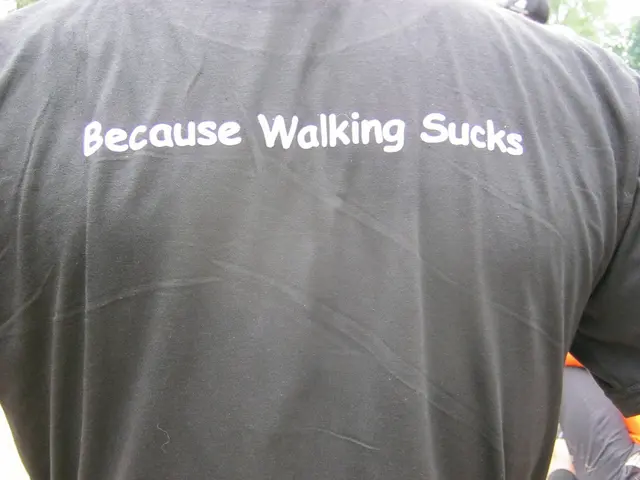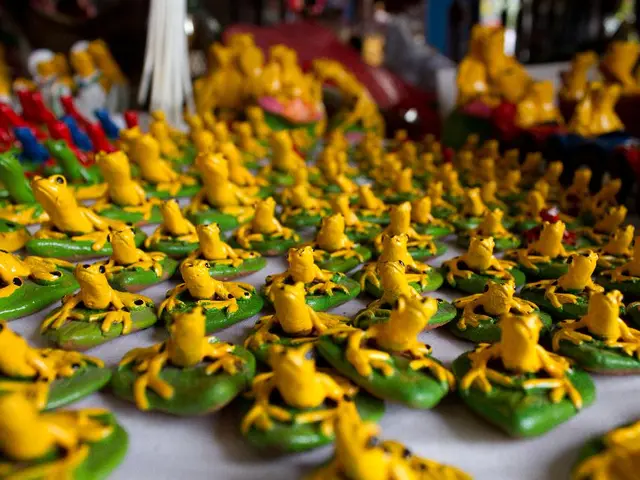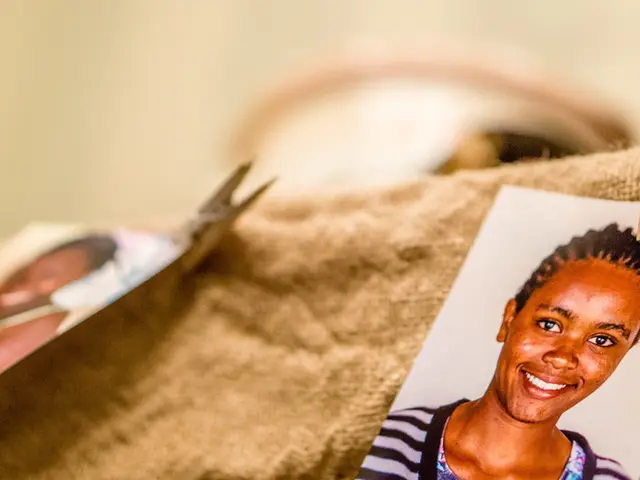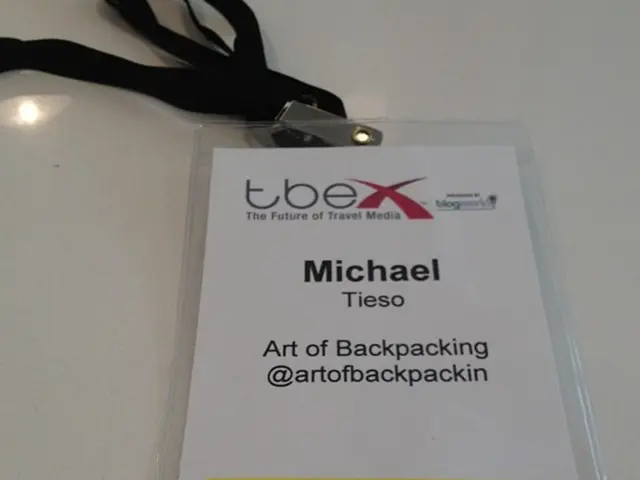Hamid accomplished what was declared in the slogan "We can do it," in the region of Westerwald, after a decade.
In the heart of Wirges, Germany, a remarkable tale of perseverance and integration unfolds. Hamid Nuri, a 34-year-old refugee from Afghanistan, has found success as an optician, proving that opportunities and support can pave the way for a bright future.
Hamid's journey began a decade ago when he, along with his family, fled Afghanistan due to a sense of unease in their homeland. They embarked on a perilous journey across the Balkan route and found an apartment in the Westerwald.
Upon arriving in Wirges, Hamid's path was not easy. He had to commute daily by bus and on foot to a vocational school, facing initial struggles with the technical terms in his course material due to his limited German. Despite these challenges, Hamid persevered and completed his training with a grade of 2.2.
Prior to his career as an optician, Hamid was a trained hairdresser and carpenter in Afghanistan. His journey to success in Wirges was not just about professional growth, but also about integration into society. Today, he is not only professionally successful but also actively involved, playing football in a club, doing weightlifting, and helping other refugees with bureaucratic tasks.
In 2015, a refugee reception facility was set up at the Stegskopf military training area near Daaden in the Westerwald, supported by around 400 volunteers. Among these volunteers was Achim Kaempflein, a bicycle dealer, who set up a bike workshop at Stegskopf. The workshop allowed refugees to repair and borrow bikes, increasing their mobility and fostering a sense of community.
Kaempflein believes that the region benefited from the time at Stegskopf, as it brought the population together in a way he hadn't seen before or since. However, he acknowledges that the current divisions between supporters and opponents of refugee policy are not just due to the refugees, but also to the politics after 2015.
Besides the bike workshop, Stegskopf offered children's programs, a fitness studio, and many other services. Yet, language barriers and bureaucratic hurdles hindered the integration of many refugees, as seen in the case of Kaempflein's former trainee from Syria who chose to work in a discount store due to the technical work being too demanding.
As we approach the ten-year anniversary of Angela Merkel's statement "We can do this," Kaempflein draws a mixed conclusion. He acknowledges societal solidarity but sees greater divisions between supporters and opponents of refugee policy. Nevertheless, Hamid Nuri's story serves as a powerful reminder of what's possible when opportunities are seized and support is offered, demonstrating the life motto: "Where there's a will, there's a way."
Despite our efforts, we were unable to find the name of the former trainer of Hamid Nuri who set up the bike workshop for refugees during the Refugee Summer of 2015 at the Stegskopf military training area. Nonetheless, their contribution to Hamid's success and the spirit of community at Stegskopf remains significant.
Read also:
- Jaroslav Rudiš is organizing the Wiesbaden Literature Festival in 2025
- Top 5 ASX-Listed Graphite Companies Projected for 2025
- Affordable, Comprehensive Energy Storage Solution for Small-Scale Power Plants: The Marstek Jupiter C Plus, Priced Under 220 € per Kilowatt-Hour, Offers a 100 € Discount per Set.
- Sunscreen: Its Capabilities and Limitations - Unveiling the Facts About Its Protection and Inefficiencies
